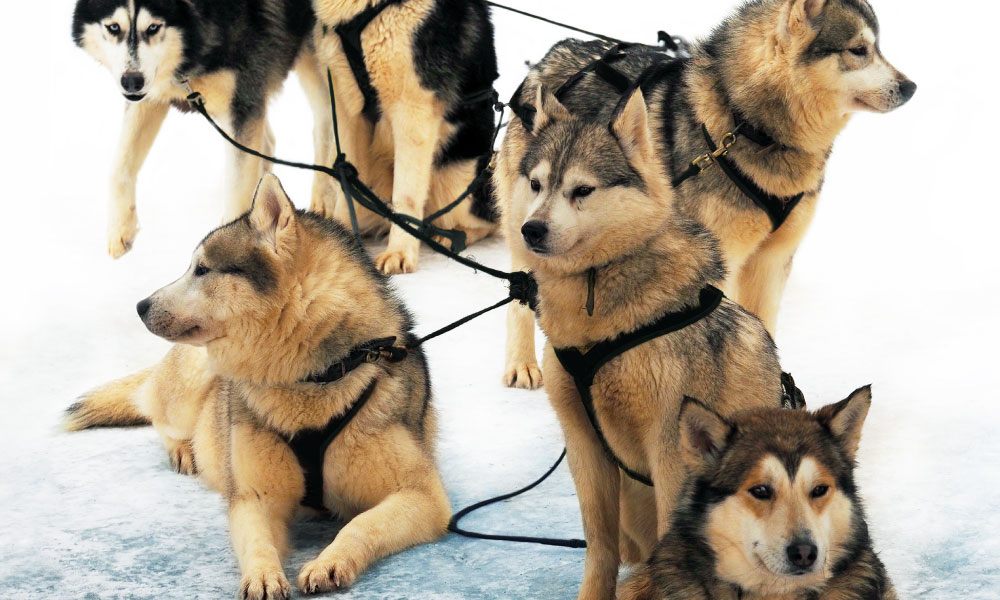
Calling all Mushers 40 and Older
An article in Forbes authored by Josh Bersin, titled “It’s not the CEO, It’s the Leadership Strategy that Matters” reinvigorated my thinking about Musher Management and its suitability to the challenges of modern employment and management. In the article, Bersin quotes an internal document of Accenture wherein they describe the “inverse pyramid” of leadership as both critical to the formation of an agile enterprise, and equally that it creates a culture wherein managers “leave work each day making Accenture a better organization”.
However, the article’s explanation of this concept falls short by failing to exploring the “inverse pyramid” as fundamentally a demonstration of the managerial philosophy of stewardship (or as I’ve termed it, “self interested care-taking”). For instance, Accenture managers should not only dedicate each day to making Accenture a better organization and company, but they should also be committed to making Accenture a place to which workers want to return the following day. In other words, not just better business, but also a more attractive place to work.
Modern employment has become more fluid, and an employee more fungible than ever. Many modalities of work exist today which create options for employment – even in these post recessionary times. Franchising, consulting and contracting, employment by non-domestic entities, web-enabled business models, blogging and social media enabled businesses, import/export/distribution (to name just a few modalities) all create employment alternatives for an employee.
So why I have targeted this blog post for 40 year old managers and older? Because, as we have evolved though Generations X, Y, the Z (sometimes also known at Millennials, and which would include my own sons aged 12 to 20 years old, and which often lumps in GenY), their overall expectations of an acceptable work environment are still forming, but are considerably different than the preceding generations. Those of us who are 40 years old and older could be called the tail end of the baby boomers, perhaps even Generation Xers, which it is generally thought to end with the 1975 birth year. Millennials are highly connected, value community, value individual expression (as amplified by the internet), and have a fluid concept of employment. They will be managed most directly by Generation Y employees. Generation Y employees came of age in highly prosperous times. They value individual satisfaction, and up until the economic crisis, typically simply moved from one job to another when their needs were not met by the culture of an employer. Ironically, GenY managers will be a critical lynchpin in the formation and perpetuity of a stewardship culture, but these are the same managers who have spent much of their career concerned with “it’s all about me”. Extra focus will be required to ensure their adoption of the stewardship philosophy and its contribution to their own success.
Managers above age 40 typically have the remnants of the command and control business cultures in which they were originally employed – first jobs being late 70’s and early 80’s. These management cultures were often authoritarian, hierarchical, and fraternal in the sense that you had to “earn your stripes” to advance. Today’s Millennials wholly expect to be placed on a work team with a senior-most executive because of a perceived sense of or desire for “flatness” in an organization. Each member contributes what s/he knows and is capable of, regardless of age or position. They work for the cause, and for each other. And definitely not for “the Man”.
Musher Management can accommodate and leverage behaviors, attitudes, and expectations of the Millennial generation. Executives who are “in charge” but who act demonstrably for the betterment of the company, who create a culture of interaction, transparency, and mutual respect and support, will win the hearts and minds of the younger generations. The corner office, to which most managers older than 40 have physically and metaphorically aspired, will still be there, with all its perks and its prestige. But in the modern workplace, both in this decade and in the 2020’s, expect young people to stop by and stop in without fear or intimidation. And expect that, as the Musher leading these newer, younger dogs from the rear, you will enjoy the culture you’ve created.
New? Start here.
Stay in the Know
Sign-up to get our latest articles delivered right to your Inbox.
"*" indicates required fields



